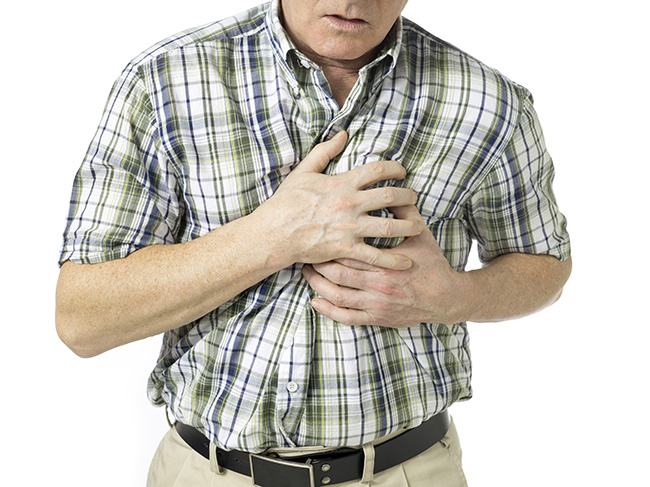Referring to the coronary artery supplying to the cardiac muscle suddenly is suddenly obstructed and causes interruption of blood circulation and oxygen supplying to the cardiac muscle. Partial or wide necrosis occurs to the cardiac muscle due to the obstruction of blood circulation, ischemia and hypoxia.
Dangerous Factors of Myocardial Infarction
- The majority occurs in middle-aged to elderly.
- The majority of patient is male while the incidence in female occurs 10 years later and will gradually increase in likelihood after menopause.
- Persons with family history in cardiovascular diseases will more likely have myocardial infarction.
- Hyperlipidemia is the main cause of atherosclerosis and the danger will increase with the following factors: 1) Total cholesterol greater than 200 mg/dl ;2) Low density cholesterol (LDL) greater than 130 mg/dl;3) High density cholesterol (HDL) smaller than 40 mg/dl.
- Persons sitting over a long period of time with few activities will increase the likelihood of myocardial infarction.
- Hypertension
- Smoking
- Diabetes
- Obesity
- Oral contraceptive
- Stress and anxiety
Symptoms
- Chest Pain: Sudden acute pain under sternum, on precordial area or Xiphoid process, heavy pain or pressure on chest, which could transfer to the neck, chin, left shoulder, arm, and back. Resting would not alleviate the pain and the pain can continue for over 30 minutes.
- Night sweat, pale facial skin, cold limbs, dizziness, nausea, vomiting, anxiety, and fear.
- Weak body, breathing difficulty, and even shock.

How to diagnose
- Blood Drawing: Rise of cardiac enzymes (CK-MB, Troponin-I) .
- Abnormal changes in Electrocardiogram: Rise in ST section, reverse T wave, and abnormal expansion and depth in Q wave.
- Echocardiography showing abnormal heart function with cardiac muscle damage.
- Cardiac catheter: Coronary Angiography.
Treatment
- Medicinal Treatment:
- Oxygen
- Antiplatelet drugs
- Anti-thrombus drugs
- Thrombolytic agent
- β-blocker
- Angiotension-converting enzyme(ACE)inhibitors
- Nitroglycerin
- Cardiac catheterization: Balloon angioplasty and stent placement.
- Operative Treatment: Coronary artery bypass surgery.
Daily Precautions for Patients of Myocardial Infarction
- Adopting diet low in fat, cholesterol and salt and high in fiber.
- Control the stability of blood sugar and blood pressure.
- Quit smoking.
- Weight control.
- Proper exercises but avoid motions requiring suspended breathing and force.
- Avoid overly cold and hot stimulation, pay attention to warmth to prevent onset of myocardial infarction.
- Regular checkup and medicine medication.

